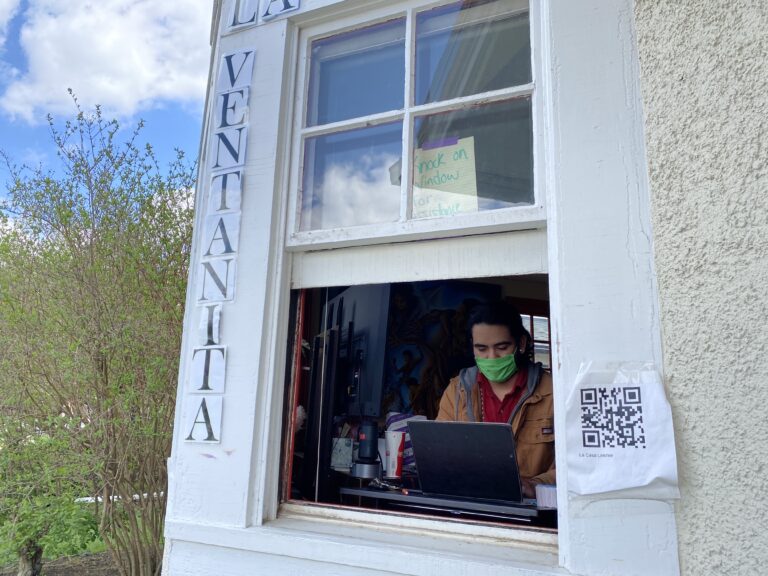URBANA — Students at the University of Illinois rely on different resources that provide food when it is needed. One such resource is the “Everybody Eats” program at Bevier Cafe.
Ricardo Lopez, a senior studying food science and human nutrition, said he experienced food insecurity during his sophomore year at the University of Illinois. He said it was tough to find meals on a daily basis.
Listen to this story here.

“I did not have the financial literacy or sort of like the “know-how” to really examine a lease and kind of budget for what it really meant when I signed it,” Lopez said. “It dug me into a hole for that year with paying rent and paying for other things that I didn’t know would be so expensive when I left the dorms like groceries.”
Lopez said he wasn’t emotional while being food insecure but that the constant daily stress created a structure for him to plan ahead and think about where he was going to receive his next hot meal due to hunger.
A 2019 University of Illinois study of 462 students showed that most students could not always afford a balanced meal. Four percent did not eat for more than three days.
Craig Gundersen, a professor of agriculture and consumer economics, said food insecurity exists on campus but not as much as it does for nonstudents.
A study by Gundersen showed that nonstudents who are the same age as college students have higher food insecurity rates
“This isn’t to say that food insecurity doesn’t exist on college campuses,” Gunderson said. “It is not as serious among other groups.
“We also have to think clearly about which types of campus (this) is given the high medium income at University of Illinois, which is about $150,000 a year for parental income. You’re not going to find much food insecurity on U of I’s campus.”
Yet Cristal Caballero, a junior studying political science and cultural house student worker from La Casa, said not every student is able to afford tuition and other necessities to survive at college.

Caballero said there are barriers when attending a university because people don’t realize students take out loans just to support their academics. Taking care of food often comes in second to those necessities.
“Some of these students, including myself, do receive aid from the federal government, but that doesn’t mean that I am able to afford all the things I need to survive at U of I,” she said.
Caballero said she can’t always afford food. She said college students don’t think about themselves as food insecure, but they know they don’t eat regularly.
“I’m like, ‘Yeah I’ve only [eaten] like a banana.’ It has been over 12 hours since I’ve been up or out and about on campus,” she said. “My friends tend to remind or [ask] like, ‘Do you want something from Bevier Cafe?’”
Bevier Cafe has been a daily food resource for Caballero. She said her friends ask one another to ensure that they are at least getting one meal whenever they stop by and visit the cafe.
The cafe is a student-run restaurant. And it provides hot meals to students through its “Everybody Eats” program. Customers have different paying options, such as to pay full price for a meal or pay it forward where the following customer can eat for free using a token.
Professor Jorden Brotherton helps supervise the restaurant. He said 50 to 60 people a day visit the cafe.
He said students appreciate the flexibility that the program provides.

“One thing that we learned when we were researching these ‘pay what you can’ restaurant models is that the one huge advantage of them is that they offer equity and a sense of choice,” Brotherton said. “There is no sense of need with respect to other people.
“It takes that feeling of being different out of the equation.”
Lopez said he hopes the program will grow and expand to help the campus community, even after the pandemic.
“It only takes one bad day, one bad month, or something for a student to fall into that need of needing food assistance,” he said. “Fortunately, there are lots of things around here to get food here, but the problem is that the students don’t know about it until they need it.
“At that moment, it is a panic. Making sure that information is readily available in a centralized location would be amazing.”
More information about resources for the food-insecure can be found at the Eastern Illinois Foodbank and the Food Assistance & Well-Being Program at the University of Illinois.

